Ground elder, also known as Goutweed, is a stubborn and invasive perennial weed that can quickly take over your garden if left unchecked. Its vigorous growth and ability to spread through underground rhizomes make it a challenge to eradicate.
What you need to know:
- Manual removal through digging and hand pulling is an effective way to get rid of ground elder.
- Smothering the ground elder by covering it with landscape fabric or cardboard can help kill it naturally.
- Solarization, using clear plastic to trap heat and kill the weed, is an effective method to eliminate ground elder.
- Using herbicides and mulching techniques can help suppress ground elder growth and prevent its reemergence.
Need a strong weed killer?
Want your Ground Elder gone!?
Best weed killer for Ground Elder: Triple Action | Buy now
How to Identify Ground Elder
If you’re trying to identify Ground Elder in your garden, look for a plant that has broad, dark green leaves arranged in a whorl around the stem, as well as small, white flowers with a four-petalled shape. Its roots should be dark brown and stringy, and it will be thriving in sunny, moist conditions.
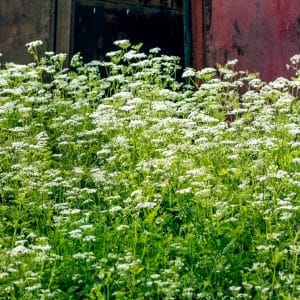
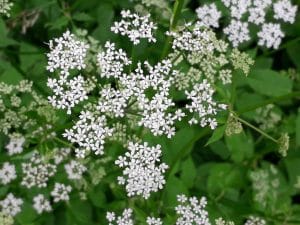
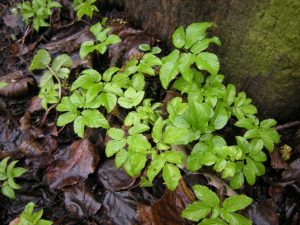
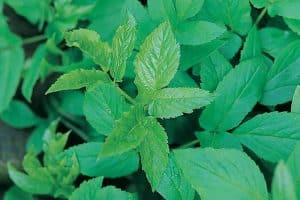
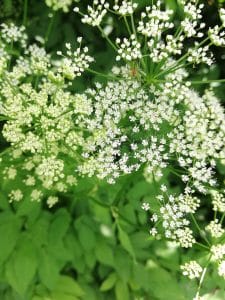
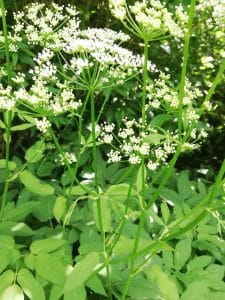

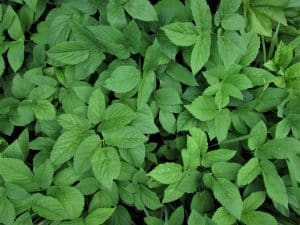
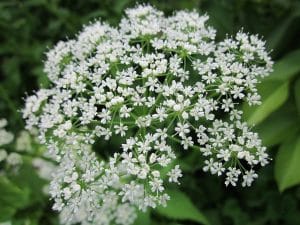
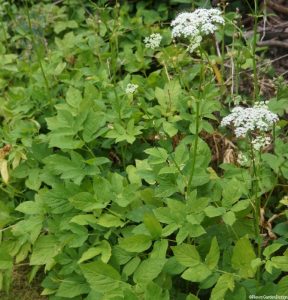
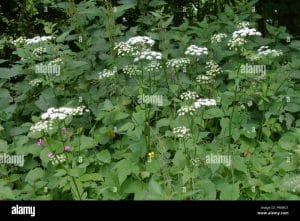
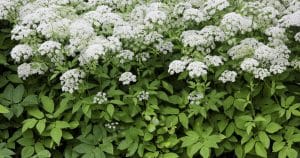
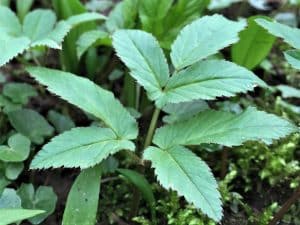
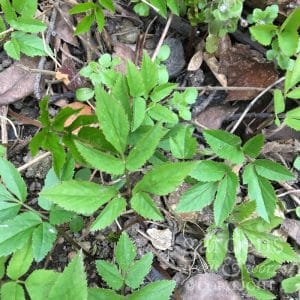
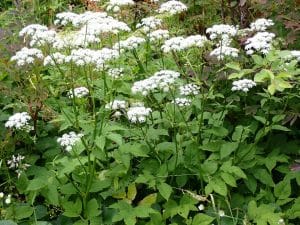
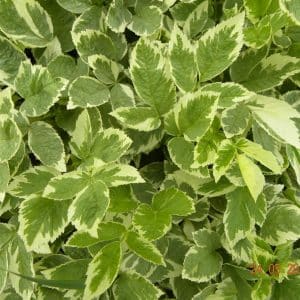
Now that you know what to look for, getting rid of Ground Elder naturally is the next step.
- Digging or hoeing the ground can help to get rid of the weed at the surface level.
- You can also use a weed killer, but be sure to follow the manufacturer’s instructions.
- Applying mulch to the soil can also help, as this will prevent the weed from getting sunlight
- Use a combination of methods to make sure you get rid of it once and for all!
Manual Removal
The first step in controlling ground elder is to physically remove as much of the weed as possible.
Here's how to do it:
- Digging: Use a spade or fork to carefully dig up the plants, making sure to remove all of the roots. Be thorough, as even a tiny piece of rhizome left behind can regenerate the weed.
- Hand pulling: For smaller infestations, you can manually pull out the ground elder plants by hand. Make sure to pull from the base of the plant to ensure you get the entire root system.
- Regular maintenance: Continuously monitor the area for new growth and promptly remove any emerging ground elder plants to prevent further spread.
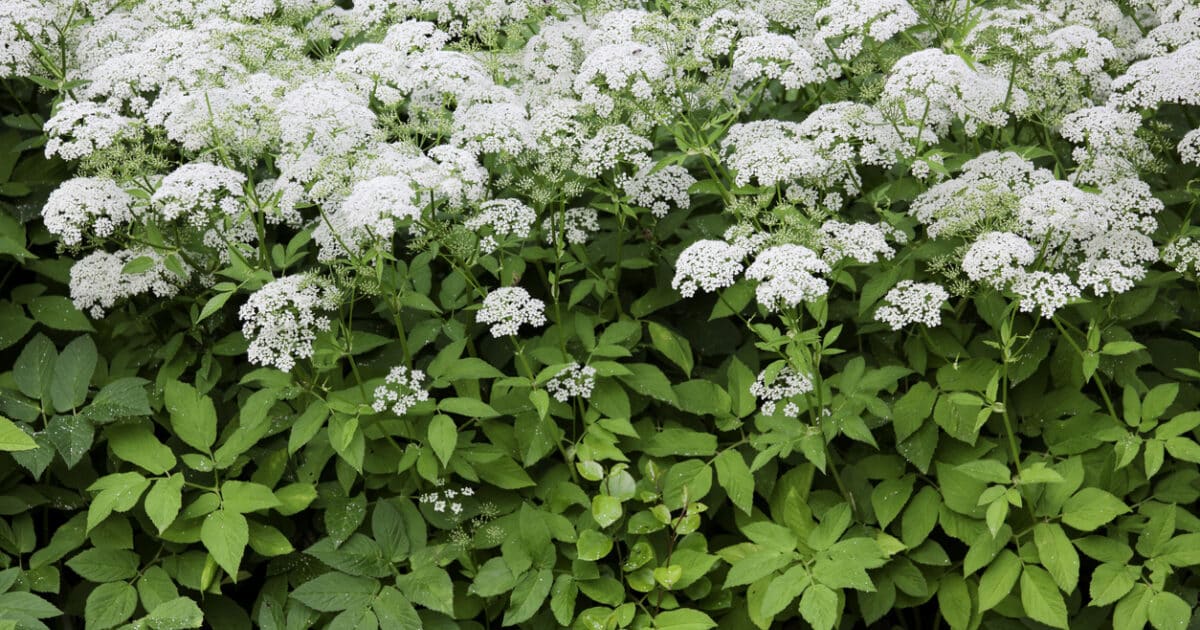
Smothering
Another effective method to kill ground elder naturally is by smothering it (mulching it), depriving it of light and oxygen.
Follow these steps to smother the weed:
- Covering the area: Place a dark-colored landscape fabric or thick layers of cardboard or newspaper over the infested area. Ensure the material completely covers the ground.
- Weighing it down: Use rocks, bricks, or heavy objects to hold the covering material in place. This will prevent the ground elder from pushing through and reaching sunlight.
- Patience is key: Leave the covering in place for several months to a year to effectively kill the ground elder. Monitor the area regularly and remove any plants that manage to push through the covering.
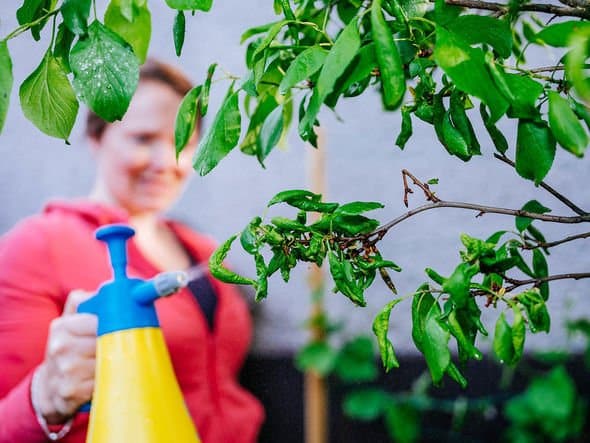
Solarization
Solarization utilizes the sun's heat to kill ground elder and other persistent weeds.
Here's how to use this method:
- Clear the area: Remove any debris, rocks, or existing vegetation from the infested area.
Irrigate the soil: Thoroughly water the soil to ensure it is adequately moist. - Cover the ground: Lay a clear plastic sheet or thick, transparent polythene over the affected area. Make sure the sheet is well-secured to prevent it from blowing away.
- Let the sun do its job: Leave the plastic cover in place for a minimum of six to eight weeks during the hottest period of the year. The heat trapped under the plastic will raise the temperature of the soil, effectively killing the ground elder and its rhizomes.
Herbicides
If the manual methods mentioned above are not viable options for you, there are some herbicides (weed killers) you can use to control ground elder.
These products are can either be natural or synthetic..
If you'd prefer a natural solution then look for herbicides containing ingredients like acetic acid, citric acid, or clove oil, and follow the manufacturer's instructions for application.
It's important to note that natural herbicides may require repeated applications and may not completely eradicate ground elder. However, they can be useful in suppressing the weed and keeping it under control.
Commercial weed killers such as Glyphosate or Triclopyr will be much more effective at eradicating deep rooted perennials such as Ground Elder.
Mulching
Mulching is an effective method to suppress ground elder growth and prevent it from reemerging. By blocking sunlight and inhibiting weed germination, mulch helps in the long-term control of ground elder. Here's how to use mulch effectively:
- Choose the right mulch: Opt for a thick layer of organic mulch, such as wood chips, straw, cardboard or shredded bark. These materials not only smother the ground elder but also improve soil moisture retention and fertility.
- Apply mulch generously: Spread a layer of mulch around 4-6 inches thick over the infested area, ensuring complete coverage. Avoid creating any gaps where the ground elder can emerge.
- Monitor and replenish: Over time, the mulch may break down or thin out. Regularly check the area and replenish the mulch as necessary to maintain its effectiveness.
Permaculture
Permaculture, a holistic approach to gardening and sustainable living, offers some innovative techniques to manage ground elder naturally.
While they may require more time and effort, these strategies can yield long-term results. Here are a few permaculture methods to consider:
- Sheet mulching: This technique involves layering organic materials (such as cardboard, straw, compost, and leaves) over the affected area to create a thick, weed-suppressing barrier. As the materials decompose, they enrich the soil and hinder the growth of ground elder.
- Plant competition: Introduce competitive plants that can outcompete ground elder for resources. For example, densely planting ground cover plants like sweet woodruff (Galium odoratum) or hostas can help shade out and weaken the ground elder.
- Dynamic accumulators: Consider incorporating dynamic accumulator plants, such as comfrey (Symphytum spp.) or nettles (Urtica spp.), into your garden. These plants have deep root systems that mine nutrients from the soil and can help restore fertility while suppressing ground elder growth.
What's the best way?
The choice of which methods to employ depends on various factors, including the size of the infestation, available resources, and personal gardening philosophy.
It is often best to combine multiple approaches to tackle ground elder effectively. Remember to be patient and persistent, as eradicating ground elder can be a long-term process.
For those hesitant to remove ground elder completely, it can be managed by containing it within designated areas, such as raised beds or pots, and regularly monitoring and removing any escaped shoots.
By implementing a combination of these natural methods and carefully managing the weed, you can control ground elder and restore the beauty and health of your garden.
Remember, garden maintenance and preventative measures are crucial in keeping ground elder at bay.
FAQ
1. Can I use vinegar to kill ground elder?
Vinegar is a popular homemade weed killer, but its effectiveness in killing ground elder may be limited.
While vinegar can be useful in suppressing young ground elder plants, it may not completely eradicate the weed, especially mature and well-established ones. However, using vinegar as a preventative measure or in combination with other control methods can help in managing ground elder infestations.
2. How long does it take to kill ground elder using natural methods?
The time it takes to kill ground elder naturally can vary depending on the severity of the infestation and the control methods employed. Manual removal, smothering, and solarization methods typically require several months to a year to effectively eradicate the weed.
Patience and diligence in monitoring and maintaining the treated area are crucial for long-term success.
3. Can I eat ground elder?
While ground elder is considered a weed in gardens, it has a rich history as a culinary herb in certain cultures. However, caution must be exercised when foraging and consuming ground elder, as it can be easily confused with similar-looking plants that may be toxic.
If you are interested in exploring ground elder for culinary purposes, it is essential to positively identify the plant and consult reputable resources or experts before incorporating it into your cooking.
4. Will ground elder come back after treatment?
Ground elder is a resilient weed, and there is a possibility that it may come back after treatment. This is especially true if its underground rhizomes were not entirely removed during manual removal or if any fragments were left behind.
Vigilance in monitoring the treated area and promptly addressing any regrowth is essential to prevent ground elder from re-establishing itself. Combining multiple control methods and implementing thorough preventative measures can help minimize the chances of recurrence.
5. Are there any companion plants that can help deter ground elder?
While complete eradication is the ultimate goal, incorporating certain companion plants into your garden can help deter the spread of ground elder.
Plants such as mint, thyme, and marjoram have been known to suppress the growth of ground elder due to their aromatic properties. Additionally, densely planted perennial flowers or ground covers can provide competition and shade, limiting the growth of ground elder.
However, it is important to note that companion plants alone are unlikely to completely eradicate ground elder and should be used in conjunction with other control methods.
